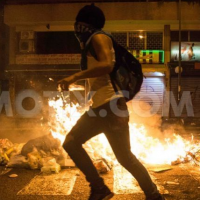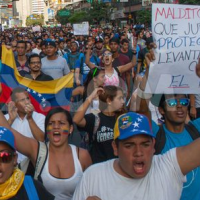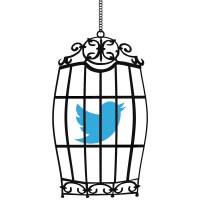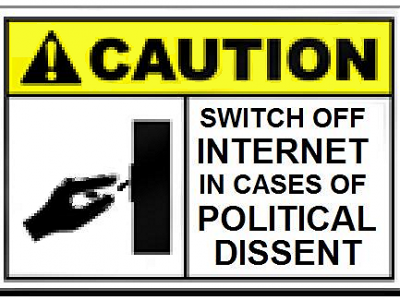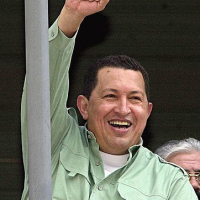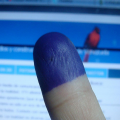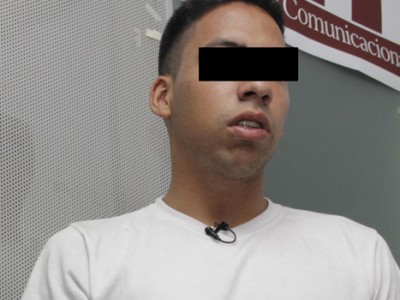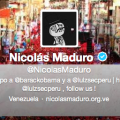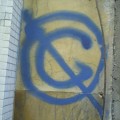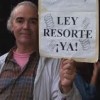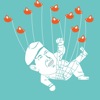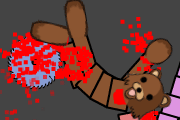Latest posts by Marianne Diaz
Venezuela: The Internet Goes Dark in Táchira
"In Táchira we're without Internet, water, light, food, gasoline..." Live tweeting from what many are calling the "militarized" state of Táchira, where the currently raging protests began.
Venezuela: Police Seize Protester Mobile Phones
Protesters believe police are reviewing their personal information, erasing pictures and video of the protests, and sending prank messages to their families and friends.
Venezuela: Twitter Photos Blocked as Protests Continue
As protests escalate, Internet users throughout Venezuela are reporting trouble accessing websites and multimedia content on Twitter. Most problems appear to be occuring on CANTV, the state-owned ISP.
Venezuela: Authorities Threaten to Fine Media Outlets for Protest Coverage
Protests in Venezuela have intensified after several students were detained on dubious charges. Venezuela's telecom commission is warning media that protest coverage could stand in violation of national law.
Venezuela’s President Announces Web Blocking on Live TV
On Saturday, November 9, Venezuelan President Nicolas Maduro announced publicly the government's decision to block several websites that track the unofficial price of foreign currency.
Venezuela: Chavez Recording Hits the Web, Top-Level Domain is Blocked
On September 28 and 29, Venezuelan Twitter users reported that all .co domains and shortened urls were blocked on government-owned ISP, Cantv.
Will the Revolution Still be Tweeted? Venezuela's Netizens Face Uncertain Future
Since the death of Hugo Chavez and narrow victory of Nicolas Maduro in Venezuela, two social media users have been arrested for posting information deemed “destabilizing” to the country. On election day, the Internet was briefly shut down throughout most of the country. And today, social network users are facing threats to their employment status, as authorities search profiles for signs of political affiliation that have, in several cases, resulted in users losing their jobs.
Venezuela: Facebook User Detained for “Destabilizing” Photograph
Two days after presidential elections in Venezuela, authorities detained Andrés Rondón Sayago, a citizen who allegedly spread photographs of burning ballots. Officials say that the photographs were taken during 2007 elections, not in the present day. Rondón Sayago has been accused of sharing the photographs with “destabilizing intentions.”
Venezuela: Internet blocked for “three minutes” on Election Day
Late on Election Day in Venezuela on Sunday, April 14, Internet access through the country's primary service provider CANTV was interrupted for about twenty minutes according to users' declarations and for "no more than three minutes" according to the authorities.
Colombia: Copyright Law Rejected by Constitutional Court
On Wednesday night, October 23, 2012, the Colombian Constitutional Court declared unconstitutional Articles 13 and 14 of the Law 1520, better known as Lleras Law 2.0. The proposed law provides for sanctions of online copyright infringement, in accordance with the Free Trade Agreement signed between Columbia and the United States.
Venezuela: The bill to regulate internet has been approved
On Monday, December 20th, the Venezuelan Parliament passed the bill that gives the Executive the power to regulate all content accessible in Internet within Venezuela. Through an administrative organ, CONATEL, all venezuelan-based ISPs will have the responsibility to block all content that collides with article 28 and 29.
Venezuela: Internet law moves forward, albeit with changes
In a first round of discussion, on December 14th, the Venezuelan National Assembly approved the reform to the Law on Social Responsibility in Radio, Television and Electronic Media and differed for today the Law for Telecommunications. However, the texts that were discussed yesterday were different to the ones that were published on the Assembly website, and several points were eliminated
Venezuela: A law to regulate the Internet raises controversy
Venezuelan government is promoting a law reform to regulate the access and usage of the Internet within the country, and also the implementation of a national Network Access Point.
Venezuela: WordPress reported inaccessible for three days
Since Sunday afternoon, September 26th, 2010, while Venezuelan elections for the National Assembly were still being held, several users started reporting that they were unable to access any blog hosted on the free blogging platform Wordpress.com from their internet connections within the country.
Venezuela: Government vs. Social Networks, the battle continues.
Last week, the President of the Media Commission of the National Assembly, Manuel Villalba, declared that tomorrow, September 21, he’ll file a petition before the National Prosecutor against several websites (link: ES). The cause: during a spate of deceases of people belonging to the high spheres of the government, several people expressed their enjoyment for the deaths, in diverse social networks and forums. Regarding this matter, legislator Gustavo Capella declared that this investigation should also encompass twitter and facebook.
Venezuela: Two people arrested for tweeting about banking rumors
After menacing twitter users for their online activities a couple weeks ago, last thursday two persons were arrested, accused of spreading false rumors about the banking system. Those arrested were identified as Luis Acosta Oxford (41), and Carmen Cecilia Nares Castro (35).
Venezuela: Twitterers, bloggers and forum members, in the eye of the justice.
A week ago, venezuelan President ordered to initiate a thorough and systematic investigation in order to identify the sources of the rumors about the instability of private banking. Authorities stated that generation of rumors is a crime, and that users of digital forums, online social networks, twitter or even text messages might be held responsible for manipulation and 'terrorism'.
Venezuela: Polemic raised due to the blockage of websites by governmental ISP
The main venezuelan ISP, Cantv.net, owned by venezuelan government, appears to be implementing its first censorship measures, by the blockage of two websites without any procedure.
President Chávez and his “Communicational Guerrilla”
On last sunday, Venezuelan President Hugo Chávez launched the program named “Communicational Thunder”, and seventy-five young students between ages 13 and 17, were sworn in his "Communicational Guerrilla", wearing khaki jackets and red bandanas tied around their necks. They had been trained to "fight against imperialist messages", either on social networks online, on walls and pamphlets or "through direct intervention".
Some notes on the case of Noticiero Digital and digital crimes
On past march, Venezuelan President denounced the website noticierodigital.com for "having published fake information, announcing the decease of Minister Diosdado Cabello", and he ordered the Public Ministry to prosecute the case.

